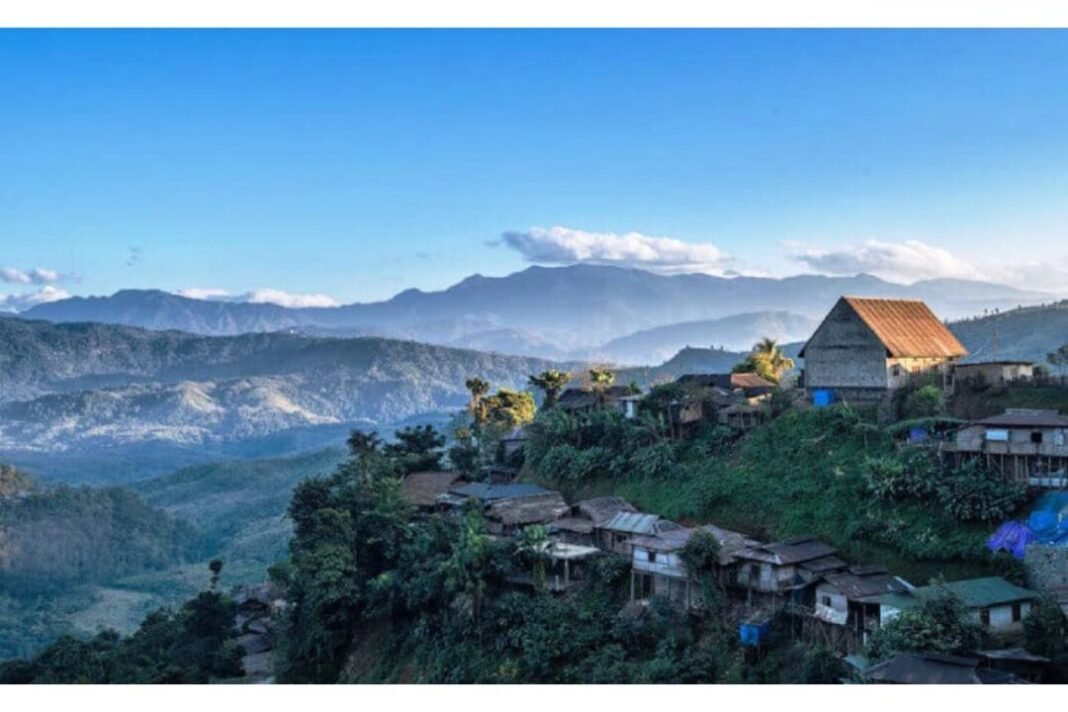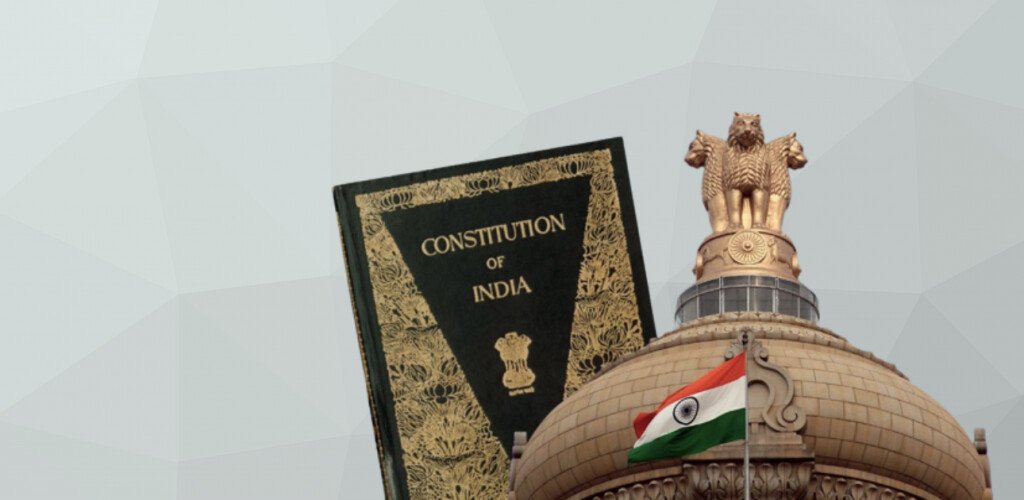By Dr. Aniruddha Babar
“Ex-communication is a cruel and archaic practice that tarnishes the very essence of human dignity and liberty. No tradition, no culture, and no authority should have the power to strip an individual of their inherent rights, dignity and identity. It is high time we abandon this destructive relic of the past and embrace a society that upholds the principles of inclusivity, respect, and justice for all.”
– Anonymous Naga Elder, KIPHIRE
The practice or punishment of ex-communication, though historically prevalent in erstwhile Naga traditions, is no longer deemed acceptable within the framework of India’s civic democratic constitutional system. In the present context, no authority in any part of India can arbitrarily strip an individual of their inherent rights, freedom, liberty and identity. The concept of excommunication, while it may have had its place in the past, should be completely abandoned in modern times, as such actions will only lead to stagnation and ruination of Naga society. Instead, society ought to embrace a culture of mature decision-making based on tolerance, understanding, and respect for the law of the land. As we continue to observe, In Nagaland, the traditional practice of excommunication has been manipulated and exploited, leading to instances where it is used as a potent tool for blackmailing individuals. What centuries ago was a cultural and social norm meant to enforce discipline within the community has devolved into a means of coercion and control, undermining the very essence of a just and inclusive society. This misuse of excommunication reflects a dark underbelly of the traditional system, where vested interests exploit its power to manipulate and intimidate innocent individuals for personal gain.
In contemporary times, observations in the state of Nagaland teach us that, ‘Excommunication’ has been employed as a weapon of psychological warfare, with certain groups wielding its threat to silence dissenting voices and perpetuate their dominance over others. Such misuse of excommunication poses a severe threat to individual freedoms and liberties, causing fear and distress among the populace and stifling the expression of diverse opinions and beliefs. Moreover, the use of ex-communication as a ‘strategic weapon’ in Nagaland is emblematic of a broader issue – the erosion of trust and respect within the community. When the traditional rules of ex-communication are perverted and strategically transformed into irreparable conditions- for malicious purposes, it not only harms the targeted individuals but also erodes the trust and cohesiveness that once bound the community together. This breakdown in social harmony can have long-lasting repercussions, creating deep divisions and animosity among people, hindering progress, and impeding the collective growth of society. Excommunication is fundamentally a violation of the Constitution of India, which guarantees every citizen the right to live their social life freely and without discrimination. The act of excommunication inherently denies an individual the right to social life in their community solely based on certain perceived transgressions or disagreements. This practice contradicts the Right to Life and the right to individual freedoms with liberties enshrined in the Indian Constitution. Therefore, it stands against the very ethos of a democratic and pluralistic society.
Furthermore, excommunication effectively results in a form of civil death for the individual, isolating them from their community/their village, depriving them of their social rights and privileges, and causing severe emotional and psychological distress. This act can have far-reaching consequences, leading to exclusion from educational opportunities, job opportunities, and social support systems, essentially pushing the excommunicated individual to the fringes of society. In a democratic and progressive society, such as India, the culture of excommunication should be discouraged. Instead, the focus should be on promoting a culture of mature decision-making, where disputes and disagreements are resolved through dialogue, understanding, and respect for the rule of law. Tolerance and acceptance of differing viewpoints are essential for fostering social harmony and cohesion. The constitutionality of excommunication is subject to the principles of constitutional morality. The Constitution is the supreme law of the land and must prevail over any traditional practices that conflict with its principles and founding pillars – Justice, Equality, Liberty & Fraternity. While traditions and cultural practices hold significance in maintaining a sense of identity and belonging, they must evolve in line with the constitutional values of equality, justice, and fundamental rights (The Natural Rights/Human Rights). In the end, the sanctity of human existence must be preserved and respected under all circumstances.
Nagaland can draw valuable and transformative lessons from the commendable and progressive step taken by the Government of Maharashtra through the enactment of the Maharashtra Prohibition of People from Social Boycott (Prevention, Prohibition, and Redressal) Act, 2016. This landmark legislation stands as a shining example of a society’s dedication to preserving constitutional values and safeguarding the fundamental rights of its citizens. By criminalizing social boycotts, Maharashtra has set a precedent for other states to emulate, highlighting the state’s commitment to fostering an inclusive and just society. The Maharashtra Prohibition of People from Social Boycott (Prevention, Prohibition, and Redressal) Act, 2016, is a momentous legal instrument designed to combat the harmful and deplorable practice of social boycott, which has been used as a tool to discriminate against and oppress certain sections of society. By explicitly addressing and prohibiting such acts, the legislation has taken a significant stride towards protecting the dignity and well-being of individuals who might otherwise have been subjected to social ostracization and deprivation of their rights. This act sends a strong message that any form of discrimination and social exclusion is unacceptable in a democratic and progressive society.
Moreover, this legislation serves as a testament to Maharashtra’s unwavering commitment to upholding constitutional values and ensuring that every citizen is treated with dignity, equality, and respect. By firmly placing the prohibition of social boycotts within the legal framework, Maharashtra has demonstrated its resolve to safeguard the rights and liberties of its people, regardless of their background or identity. This proactive approach encourages other states, including Nagaland, to enact similar laws that protect citizens from social discrimination and promote a culture of inclusivity and harmony. By drawing inspiration from Maharashtra’s proactive and forward-thinking approach, Nagaland can embark on a journey towards a more equitable and inclusive society. Enacting legislation similar to the “Maharashtra Prohibition of People from Social Boycott Act” would provide a robust legal framework to safeguard the rights of its citizens and ensure that no individual is subjected to social ostracization or discrimination under any circumstances. Such a step would showcase Nagaland’s dedication to building a progressive and harmonious society, deeply rooted in the principles of justice, respect for human rights, and constitutional ethos.
Finally, the practice of excommunication in Naga society, though historically rooted, is no longer tenable within India’s democratic and constitutional framework. No authority has the right to strip individuals of their rights and identity. The culture of ex-communication should be abandoned in favour of a more inclusive and progressive approach to dispute resolution and decision-making. Society must move forward with the values of tolerance, understanding, and respect for the law, fostering a harmonious and cohesive community that upholds the principles of constitutional morality. In conclusion, the practice or punishment of excommunication in Nagaland has been a subject of concern also due to its blatant misuse for blackmail and manipulation. This practice is not compatible with the principles of India’s civic democratic constitutional system, where no authority has the power to strip individuals of their inherent rights and identity. The strategic use of excommunication as a weapon reflects a dark underbelly of the traditional system, eroding trust and respect within the community and hindering social progress. Excommunication violates the Constitution of India, which guarantees the right to life, individual freedom and liberties to participate in social/community affairs without discrimination. It denies individuals the right to participate in their community based on perceived transgressions. Additionally, excommunication results in civil death, isolating individuals and depriving them of social rights and privileges.
Nagaland must abandon the culture of excommunication and instead embrace mature decision-making based on tolerance, understanding, and respect for the rule of law. Traditions and cultural practices must evolve in line with constitutional values, preserving and respecting the sanctity of human existence. Nagaland can learn from Maharashtra’s progressive step of enacting legislation against social boycotts, which safeguards the fundamental rights and dignity of its citizens. By drawing inspiration from Maharashtra’s commitment to social justice through its adherence to constitutional values, Nagaland can pave the way for a more inclusive and just society. Enacting laws that prohibit social boycotts will ensure the protection of citizens from discrimination and promote inclusivity. Nagaland must prioritize building a progressive and harmonious society that upholds justice, respect for human rights, and constitutional ethos, moving away from the practice of excommunication.
Last but not least – “Naga Students, Advocates, Professors, Journalists, Artists and rest of the Intellectuals should garner sufficient courage to raise their voice against the evil, illegal, unconstitutional practice of ex-communication”- Independent stand of ‘Social Leaders’ is necessary to build a better ‘tomorrow’ for the New World – for new Nagaland and the rising Frontier Naga Territory.







